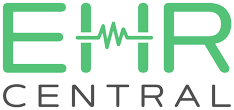Overcoming Challenges in Medical Credentialing for Small and Solo Practices:
Strategies and Solutions
Medical credentialing is a vital process that validates the qualifications and competence of healthcare providers, ensuring the delivery of high-quality care. While medical credentialing is crucial for all healthcare practices, small and solo practices often encounter unique

challenges in navigating this complex landscape. This blog aims to explore the specific challenges faced by small and solo practices in medical credentialing and provide effective strategies and solutions to overcome them. With a focus on medical credentialing services, we will discuss how outsourcing this process can streamline operations and enhance the overall efficiency of small and solo practices.
Challenges in Medical Credentialing for Small and Solo Practices
Time Constraints:
Small and solo practices typically have limited administrative resources, making allocating sufficient time and personnel for the credentialing process challenging. Juggling patient care, paperwork, and other administrative tasks can overwhelm practitioners, leaving them with little time to focus on credentialing.
How EHRCentral enhances your healthcare practice?
Complex Application Procedures:
Credentialing applications often involve lengthy and intricate paperwork that requires meticulous attention to detail. Small and solo practices may struggle to navigate the complex documentation and procedural requirements, leading to potential errors and delays in credentialing.
Staying Informed about Regulatory Changes:
The healthcare industry is dynamic, and credentialing requirements constantly evolve. Small and solo practices may find it challenging to stay updated with the latest regulatory changes, which can result in non-compliance and credentialing setbacks.
Limited Network and Resources:
Establishing relationships with insurance companies, hospitals, and other healthcare organizations is crucial for successful credentialing. However, small, and solo practices may have limited networks and resources, making building connections and gaining access to preferred provider networks difficult.
Strategies to Overcome Credentialing Challenges
Outsourcing Medical Credentialing Services:
Partnering with a reputable medical credentialing service can alleviate the administrative burden for small and solo practices. These services specialize in navigating the intricacies of the credentialing process, ensuring accuracy, and minimizing delays. Outsourcing allows practitioners to focus on patient care while ensuring that their credentialing needs are professionally managed.
Streamlining Documentation Processes:
Implementing efficient documentation processes can significantly reduce the time and effort required for credentialing. Utilizing electronic health record (EHR) systems, automated templates, and standardized forms can streamline data collection, improve accuracy, and expedite credentialing.
Staying Informed and Educated:
Small and solo practices should prioritize continuous learning to stay updated with the latest credentialing requirements and regulations. Participating in conferences, workshops, and online forums can provide valuable insights and foster professional connections, enabling practices to adapt to evolving industry standards.
Expanding Professional Networks:
Actively engaging in professional networks, joining medical associations, and collaborating with local hospitals and healthcare organizations can expand the reach of small and solo practices. Building strong relationships can lead to opportunities for preferred provider contracts, enhanced credentialing prospects, and increased patient referrals.
Leveraging Technology:
Utilizing technology solutions, such as credentialing software, can automate and simplify the credentialing process. These tools enable practitioners to track application progress, store and manage documentation and receive reminders for expiring credentials, minimizing the risk of non-compliance, and enhancing efficiency.
Benefits of Effective Medical Credentialing Services
Implementing strategies to overcome credentialing challenges brings several benefits to small and solo practices. Efficient credentialing processes reduce administrative burdens, allowing practitioners to focus more on patient care. By complying with regulatory standards, practices build trust with patients, insurance companies, and regulatory bodies, resulting in improved patient satisfaction and reimbursement opportunities. Additionally, effective credentialing facilitates network expansion, granting practices access to a broader patient base and enhancing their reputation.
With m-hospital, Avail the best medical credentialing services that start from as low as $199. Contact us now @ (833)646-7748 or email us info@bestmedicalcredentialing.com.





